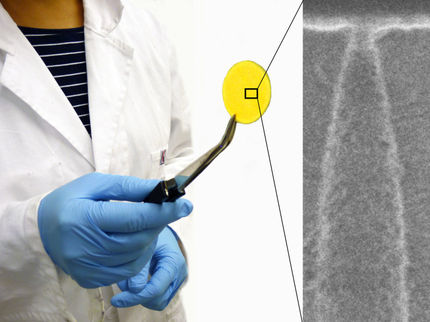Sensing zinc beyond the cell
Advertisement
Research describes the design of a new fluorescent probe that can sense ‘mobile’ zinc outside cells by using a targeting peptide that delivers the probe to the extracellular side of the plasma membrane.
Understanding zinc signalling is a significant area of interest in biological studies. Readily-exchangeable or ‘mobile’ zinc is important in human health and has been shown to have a role in the function of the pancreas, prostate and central nervous system. Current fluorescent zinc sensors tend to be based on small molecules that readily diffuse across cell membranes to give information on zinc in the intracellular environment, but it is difficult to predict how these sensors are distributed beyond the cell membrane where it would be useful to monitor zinc ions released by cells.
Scientists in the United States have developed a design for a zinc sensor that is directed the extracellular plasma membrane by attaching the zinc-signalling fluorophore to a membrane-targeting peptide scaffold. The probes can be readily prepared by solid-phase synthesis to insert the targeting peptide between the fluorophore and a fatty acid that anchors the probe to the cell membrane. The scientists conducted live cell imaging experiments that gave a positive signal for zinc in the plasma membranes of the cells.
Most read news
Other news from the department science
These products might interest you

Hose pressure transducer by HiTec Zang
Contactless pressure measurement for sterile applications
Easy-to-install tubing pressure sensors for diameters from 4.8-19.1 mm

FireSting-PRO by PyroScience
New fiber optic measuring device: Precise measurements even in the smallest volumes
Measure pH, oxygen and temperature even under sterile conditions

Get the life science industry in your inbox
By submitting this form you agree that LUMITOS AG will send you the newsletter(s) selected above by email. Your data will not be passed on to third parties. Your data will be stored and processed in accordance with our data protection regulations. LUMITOS may contact you by email for the purpose of advertising or market and opinion surveys. You can revoke your consent at any time without giving reasons to LUMITOS AG, Ernst-Augustin-Str. 2, 12489 Berlin, Germany or by e-mail at revoke@lumitos.com with effect for the future. In addition, each email contains a link to unsubscribe from the corresponding newsletter.

























































